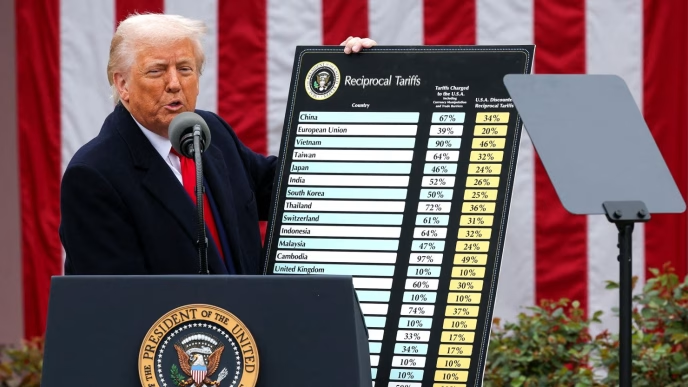The US-China trade war has caused ripple effects across the global economy, and Fortune 500 companies—often the bellwethers of business performance—are not immune to the shifting dynamics of international trade. The ongoing conflict between the world’s two largest economies has resulted in tariffs, regulatory changes, and market uncertainty, leading to significant impacts on these industry giants.
Here’s a breakdown of how the trade war is affecting Fortune 500 companies:
1. Disruption of Supply Chains
The trade war has heavily disrupted supply chains, especially for companies that rely on China for the production of raw materials, finished goods, or components. Tech companies like Apple, Intel, and other electronics manufacturers that depend on Chinese factories for assembly and parts production have experienced delays, increased costs, and logistical challenges.
In particular, tariffs on Chinese imports have raised the cost of goods for these companies. Many have responded by seeking alternative suppliers or even considering reshoring production to avoid the 25% tariffs on Chinese-made products.
2. Increased Costs of Goods Sold (COGS)
For companies with significant exposure to Chinese imports, the higher tariffs on Chinese goods have meant a direct increase in the cost of manufacturing. Companies like Walmart, Target, and General Motors are seeing a rise in the prices of raw materials and components due to these tariffs, and many have passed these costs on to consumers, which has affected consumer demand.
The rise in COGS has also affected profit margins for some companies. Even though some industries have managed to offset the costs by finding new sources of manufacturing or increasing automation, the overall profitability of companies is at risk.
3. Impact on Consumer Goods Companies
Consumer goods companies, such as Nike and Procter & Gamble, face the challenge of navigating higher costs due to the tariffs. Many of their products are manufactured in China or use Chinese-made components, which means they are directly impacted by the trade dispute. For Nike, a major portion of their athletic shoes are produced in Chinese factories, and the additional tariffs have forced the company to reconsider its pricing strategy and its reliance on Chinese manufacturing.
4. Shift in Market Focus
As US-China trade tensions rise, some companies are shifting their focus away from Chinese markets to regions like Southeast Asia, India, and Europe. Companies like Tesla and Starbucks, which have significant operations in China, have been affected by decreased sales and regulatory obstacles. As a result, they are diversifying their presence in other parts of the world to hedge against the uncertainties in China.
5. Tech Sector Turmoil
Technology companies have been particularly vulnerable to the US-China trade war. Companies like Huawei, which has been hit by US sanctions, have found themselves facing massive challenges in terms of accessing US technology, including microchips and other vital components. On the flip side, American tech companies like Apple, Google, and Microsoft have experienced difficulties due to China’s retaliatory tariffs.
Apple, in particular, has been trying to diversify its supply chain out of China to mitigate the risk of the trade conflict. However, China remains a key manufacturing hub for Apple, and moving production out of China would be both expensive and logistically challenging.
6. Geopolitical Risk and Market Uncertainty
The continued unpredictability of the trade war has created a climate of uncertainty. Investors are wary of the potential for further escalation, and this has led to volatile stock prices for many Fortune 500 companies. Companies with significant exposure to China are facing a tough task in managing investor expectations and shareholder pressure to perform in the face of ongoing geopolitical risks.
7. Foreign Market Access and Trade Barriers
One of the biggest risks for Fortune 500 companies operating in China is the potential for further trade barriers or even market access restrictions. The Chinese government has shown that it is willing to retaliate against US companies by restricting access to certain sectors or implementing harsh regulations. Companies like Google and Facebook, which have long struggled to gain access to the Chinese market, now find themselves caught in the crossfire of the trade war, with little hope of breaking through these barriers.
8. The Potential for Long-Term Economic Impact
While the trade war has had immediate financial consequences for these companies, the longer-term economic effects could be even more significant. Companies are beginning to reassess their long-term strategies, including how they structure their supply chains, where they invest, and how they manage geopolitical risk.
The ongoing trade war is driving companies to become more resilient in the face of global economic uncertainties. They are focusing on diversifying supply chains, increasing automation, and finding alternative markets to ensure continued profitability even as trade tensions persist.
9. Shifting Consumer Preferences
The trade war has had a ripple effect on consumer behavior. As tariffs drive up the prices of goods, consumers may reduce spending, particularly on non-essential luxury goods. For example, companies that produce high-end electronics, automobiles, or other imported products may find themselves facing declining demand as consumers cut back on discretionary spending.
10. Potential Opportunities for New Markets
Despite the challenges, the trade war has created opportunities for some companies, particularly those with the ability to adapt quickly. With China facing tariffs and trade barriers in some markets, other countries are stepping up to fill the void. For example, India, Vietnam, and Mexico are emerging as new centers for manufacturing and trade. Companies that can pivot quickly and establish a presence in these countries are positioning themselves for success as the trade war shifts the global economic landscape.
Conclusion
The US-China trade war has undeniably left a significant impact on Fortune 500 companies, with disruptions to supply chains, increased costs, and shifting market dynamics. While many companies are struggling to cope with the new reality, others are adapting by diversifying their operations and expanding into new markets. The long-term success of these companies will depend on how they navigate the changing landscape and manage the risks associated with the trade conflict.
As the US-China trade war continues to evolve, companies will need to remain flexible and proactive in their strategies to weather the storm and emerge stronger on the other side.
















